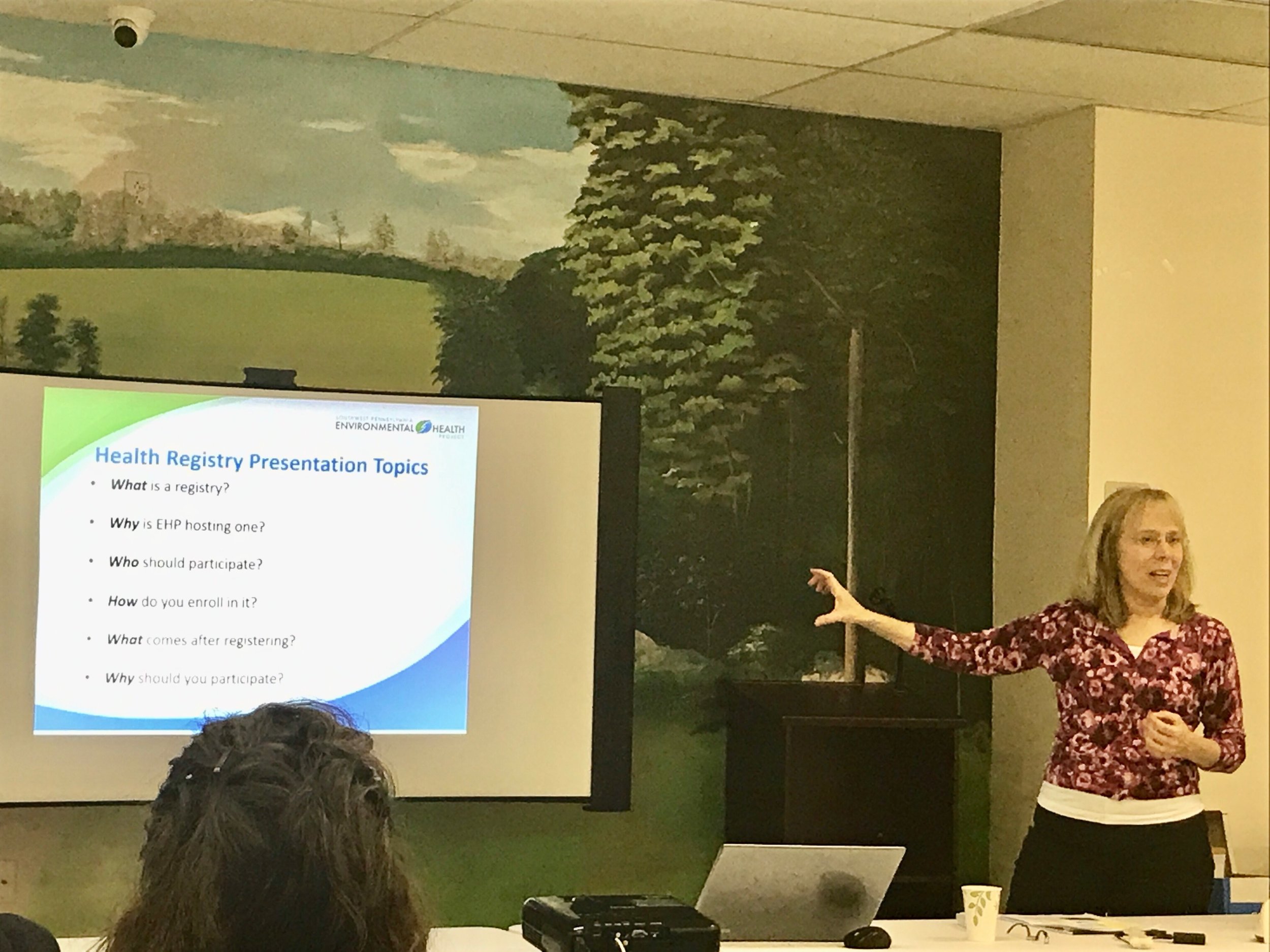
SWEHP Presenting in Buffalo Township (Photo Credit: Sarah Martik)
Living near a shale gas extraction site, compression station, or pipeline comes with some expected and some potentially unexpected effects of which all residents in the area should be aware. The release of chemicals and particulate matter into the atmosphere is expected; however, an event like a well fire or pipe leak is not something you can predict. The most important thing for residents to do is to be proactive: document your health on a registry, and be prepared to respond in case of an acute disaster.
The Southwestern Pennsylvania Environmental Health Project (EHP) has an online registry where residents can document their health symptoms by filling out a questionnaire. The benefit of regularly updating your information on the registry is that researchers can use this data to find correlations between shale gas activity and health issues. Knowing your symptoms and what causes them can help you add the right air filtration systems to your home and know what you should tell your doctor should you ever need treatment. This information can also then be used when talking to legislators about why we need strong regulations on this industry.
In addition to being vigilant about your health, you should also make sure that you are prepared to respond in case of a disaster. The EHP recommends that you contact your local volunteer emergency coordinator to get his or her recommendations for how to prepare an emergency kit. Bottled water is important for any emergency situation; pliers are useful for turning off your gas valve to stop gas from flowing into your house; a whistle can be used to help first responders know where you are in the event that you are trapped. Some disasters may require that you evacuate your home, and knowing your evacuation route can help all residents of your community get to safety quickly.
Thinking about these issues is not pleasant for anyone – when I listened to this presentation, I started to panic a bit myself – but being aware and prepared is the reality of being a resident of the shale fields, and it will help you if you ever find yourself in a dangerous situation.

